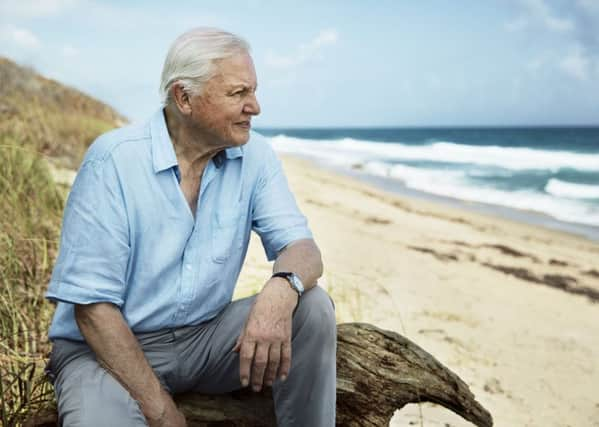YP Letters: Nothing to celebrate with plastic threat


WITH reference to your article “Christmas Coca Cola truck visits Leeds’ White Rose Shopping Centre”, I, for one, did not celebrate the arrival of the truck in Yorkshire.
As a Sheffield-dwelling mother to a three-year-old, I am concerned about the future of our environment, including our seas.
Advertisement
Hide AdAdvertisement
Hide AdI don’t want my daughter to grow up in a world where there is, by weight, more plastic in the ocean than fish, as some studies predict there will be by 2050.
I have been following the Greenpeace campaign about Coca Cola bottles and plastic waste and I have also been enjoying Blue Planet II, but have found it very hard to watch the footage of animals suffering and dying due to a build-up of plastics in the ocean.
David Attenborough commented on the plastic problem ahead of the release of Blue Planet II: “We could do something about plastic right now…
“We’ve seen albatrosses come back with their belly full of food for their young and nothing in it.
Advertisement
Hide AdAdvertisement
Hide Ad“The albatross parent has been away for weeks gathering stuff for her young and what comes out?
“What does she give her chick? You think it’s going to be squid, but it is plastic…”
Rather than join the queue for a freebie from the CocaCola truck, I will be joining Greenpeace in calling for Coca Cola to clean up their act, and stop destroying our planet with their excessive and unnecessary plastic production.
Hero without a proper grave
From: Mrs SM Barnard, North Park Road, Leeds.
LIKE the young Spitfire pilot John Henry Coates (The Yorkshire Post, November 27), my uncle Arthur Vincent Gowers DFC (‘Gus’), was killed in action in 1943 after four years of fighting.
Advertisement
Hide AdAdvertisement
Hide AdHe was ordered to lead his squadron of Typhoons at ‘zero feet’ in a raid over Cherbourg, France; the target was the Munsterland, a ship full of materials for the German war effort.
The squadron had no chance against the flak; two pilots were ‘downed’ into the sea and one was taken prisoner.
Two researchers, one Dutch and one French, worked on Gus’s case and believed they had not only traced where his body was washed ashore but had also located his grave in the old cemetery at Cherbourg.
The case was presented to the Commonwealth War Graves Commission, but despite their receiving certain information from his widow (who has since died) which we believed would clinch the case, it was rejected.
Advertisement
Hide AdAdvertisement
Hide AdDNA could identify him, but the CWGC said they were unwilling to take this step. Gus lies in a CWGC grave in a beautifully kept cemetery, but he is nameless and does not even have the honour of an RAF badge on his memorial.
I have the greatest admiration for the CWGC and their excellent work, but his descendants and I feel that this is a sad way to treat a much-loved young man who, only 30 years old, gave his life for his country.
Not all birds safe on moors
From: Becky Huff, Threshfield.
DO gamekeepers have a role to play in monitoring declining bird populations? I am a bird lover of the Yorkshire Dales, who lives in Threshfield.
I found the article in The Yorkshire Post about the the work of the’ Dales Gamekeepers’ very enlightening.
Advertisement
Hide AdAdvertisement
Hide AdOn the one hand, it mentions monitoring the wading birds and counting the fledglings, even setting up cameras. An admirable exercise, no doubt. Mention of moorland areas ‘where gamekeepers control foxes, crows, stoats and other predators.’
It doesn’t mention the ‘the other predators’ – namely birds of prey. They, too, are in need of protection.
Gone is the time when the public were invited to watch the sky dancing of the hen harriers on the moors above the trough of Bowland.
‘They’ (the harriers) will not do as they are told, and stay on the moors that will welcome them. They are wild and wander at their cost.
Advertisement
Hide AdAdvertisement
Hide AdSurely these need mentioning too. They are being clinically wiped out in this area.
Is it not worth talking openly about this whole picture of life on our grouse moors, instead of just painting the rosy picture of looking after the wader birds? Surely all birds are in equal need of our care?
From: Elisabeth Baker, Leeds.
I SEE from Roger Ratcliffe’s Country and Coast column (The Yorkshire Post, November 29) that I am not the only birdlover who hates sparrowhawks.
It is not unusual to find in the garden the remains of what we think of as a murder. I have on more than one occasion seen the speed with which our local sparrowhawk has swooped down and taken its prey, the victim usually having been feeding in the garden.
Advertisement
Hide AdAdvertisement
Hide AdWhen I telephoned the RSPB, of which I am a member, to ask if there was anything I could do to protect the birds from the sparrowhawk, the response I received was that it was wonderful that there was a sparrowhawk around, as it meant that we had a healthy bird population.
At this rate it won’t be healthy for long.
And don’t mention the local cats...
BBC let down by grammar
From: Father Neil McNicholas, Yarm.
IT’S nice to know the BBC continues to not have a clue.
On the evening news, November 28, a screen caption for an item on the problems of poor education in Newark read: “Only one in ten pupils go to university” – no wonder if their English is as bad as the BBC’s.
“One” is the subject of the verb, not “ten” and therefore it should have read “One in ten goes to university”.